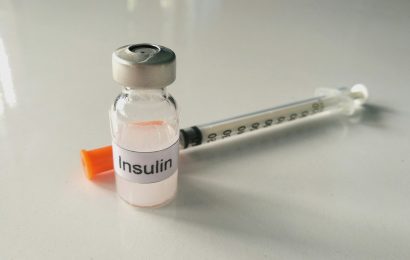OK, so here’s the last part of my series on IBS (I promise!). But as you can see, there’s a lot to say about this condition (just as there’s a lot to say about diabetes). I mentioned this previously, but I do think there are a lot of similarities between IBS and diabetes. When it comes to treatment approaches for either condition, there is no one "right" method; treatment must be individualized, based on such factors as type and severity of symptoms. Fortunately, as we learn more and more about diabetes as well as IBS, more treatment options become available.
Exercise
Being physically active is a prescription for most chronic conditions. On the one hand, regular exercise is a way to blow off steam and relieve stress. Going for a walk (pounding the pavement!) or vigorously raking leaves, for example, helps you to get out your aggravations and frustrations in a healthy way. And research has indicated that people who are stressed or feeling depressed can benefit from exercise.
But exercise may help IBS in another way by reducing some of the gastrointestinal (GI) symptoms of IBS. In fact, one study in particular focused on a group of obese subjects who were involved in a weight loss study. The people who were the heaviest at the end of the study reported more GI symptoms, especially pain and diarrhea. And while eating a lower-fat, higher-fiber diet was linked to fewer symptoms, exercise was clearly related to reduction of symptoms.
Physical activity may help by “conditioning” the bowel and actually making it more “fit” so that symptoms are reduced. Exercise can help relax not only your mind, but your bowel, too. And a study published last year in the International Journal of Sports Medicine found that exercise was beneficial in reducing IBS-related constipation.
A few cautionary notes about exercise and IBS: It’s possible that intense types of exercise, such as running, may aggravate symptoms, including diarrhea and cramps. If you’re finding this to be the case, don’t give up; instead, take these factors into consideration:
- Wait a couple of hours after eating to exercise.
- Limit or avoid caffeine and alcohol before exercise.
- Limit fatty foods and gassy foods, such as broccoli and cabbage.
- Try to exercise at times when you’re least likely to have symptoms.
Hopefully, you have some kind of physical activity routine in place. If not, and you have IBS, think about ways to be more active. You don’t have to be a runner, nor do you have to join a gym. Maybe walking or yoga sounds more appealing. The point is to find something that you enjoy and that doesn’t aggravate your symptoms.
Stress Reduction
There’s a definite link between your digestive tract and your brain — it’s not just “in your head.” Nerves link your colon with your brain, and when you’re stressed or upset for any reason, you very well might experience GI symptoms. How many of you get butterflies in your stomach when you have to give a presentation? For some people, feeling nervous can even trigger feelings of being “sick to your stomach.” In the case of IBS, even the slightest amount of stress or anxiety can trigger symptoms.
Finding ways to reduce or cope with stress is a key part of IBS management. We all have stress and to expect it to go away is unrealistic. But if you can better handle it, you’ll feel more relaxed and in control. How do you cut down on stress? Here are some ways:
- Relaxation and meditation
- Biofeedback
- Hypnosis
- Exercise
- Counseling
- Adequate sleep
- Finding ways to remove the source of stress, if possible
IBS Resources
I hope you’ve found this “mini series” helpful, either for you or for someone you know who has IBS. It’s important to work with a team of health-care professionals who ideally are experienced with IBS and can help you with various treatment approaches. In addition, you might seek support from others who have IBS. Check out the IBS Self-Help and Support Group’s Web site at www.ibsgroup.org, a resource for information and online support. Another resource is the International Foundation for Functional Gastrointestinal Disorders, a nonprofit education and research group, at www.iffgd.org. You can also reach them by phone at (888) 964-2001.




